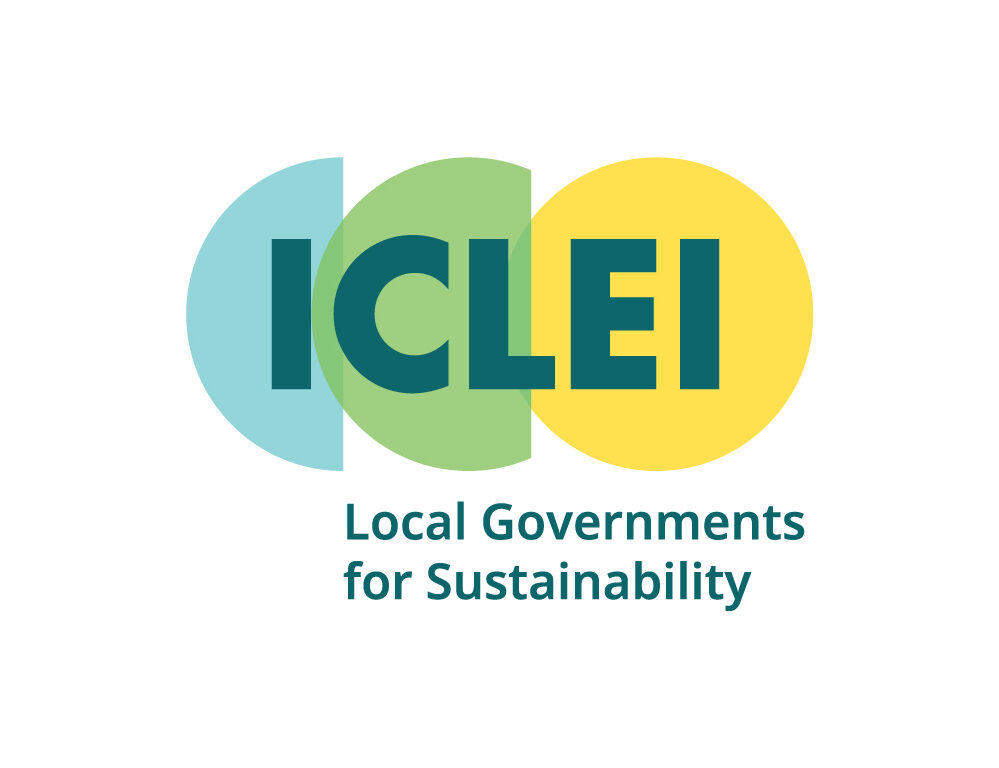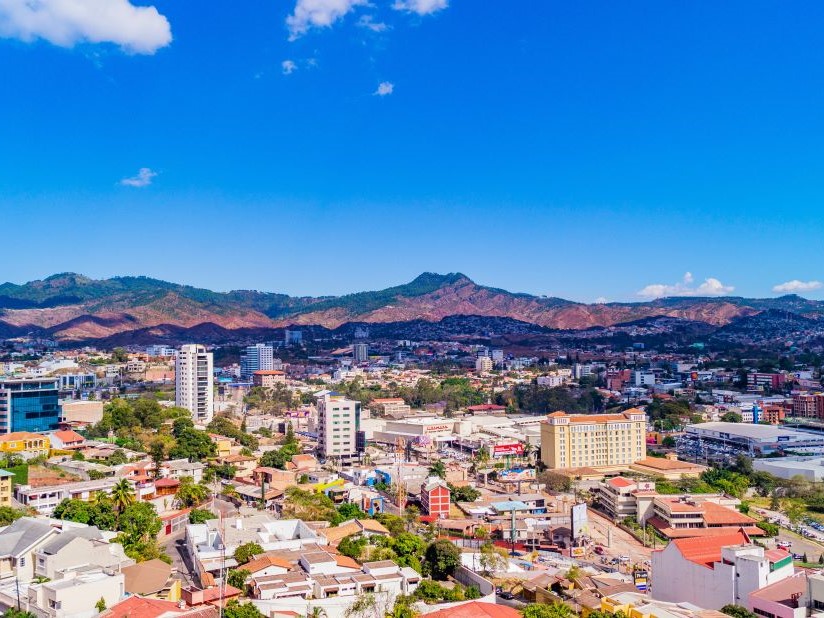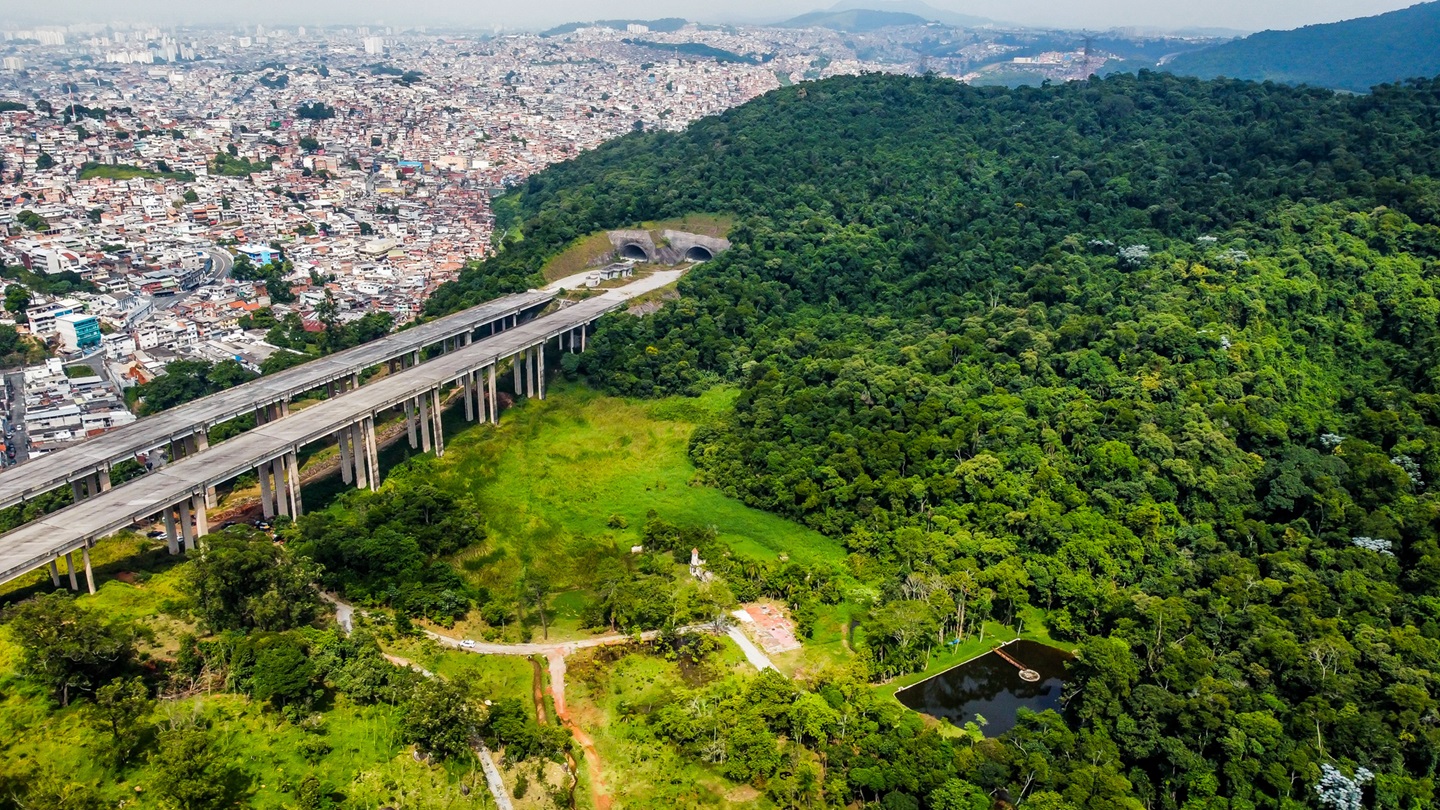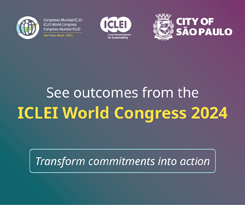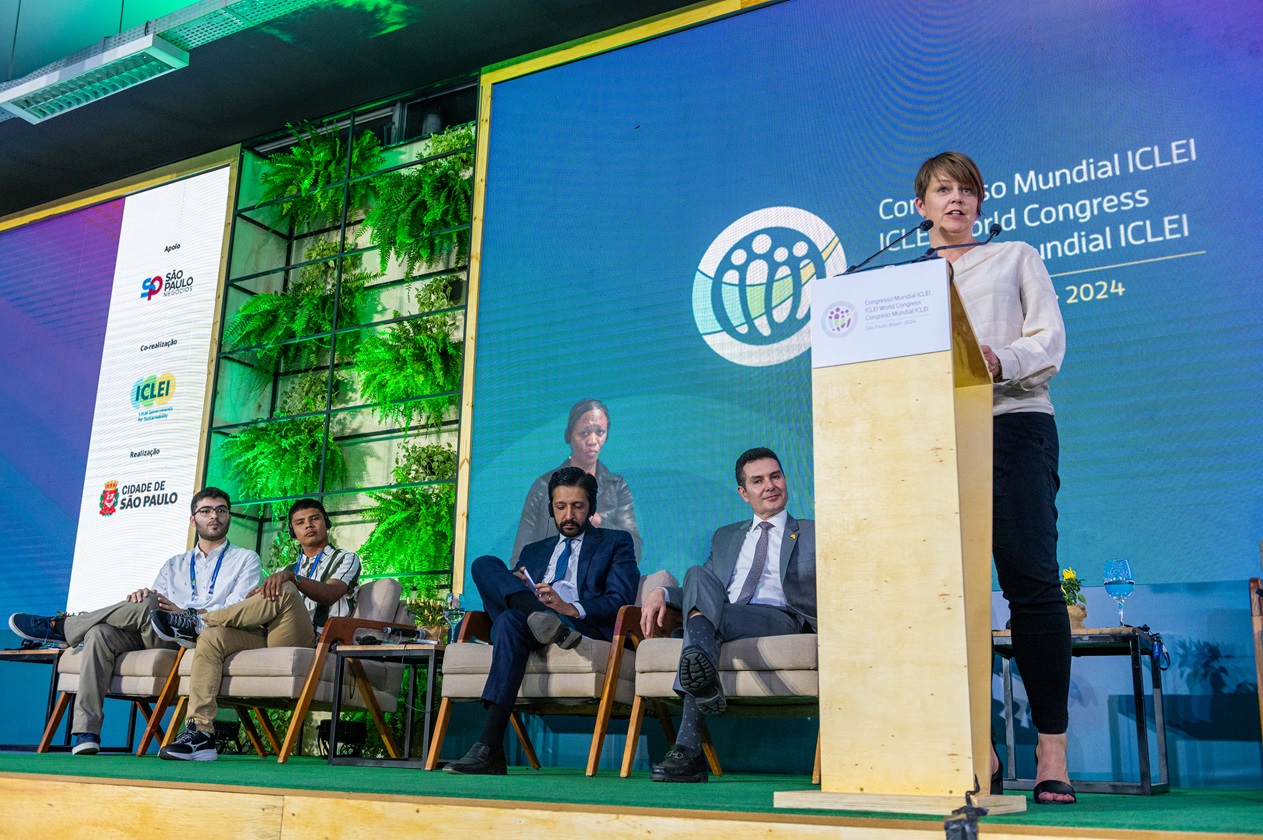
Photo: ICLEI
Five cities pioneering urban sustainability
11 July 2024
By Barbara Riedemann, ICLEI – Local Governments for Sustainability
From 18-21 June, São Paulo, Brazil, hosted over 1,500 participants at ICLEI World Congress 2024. The event showcased innovative real-life city examples of sustainable urban development from around the world. Local and regional governments in the ICLEI network aim to pursue zero emission, nature-based, equitable, resilient and circular development in order to achieve urban sustainable development. Here we highlight five cases from the Congress that offer inspiration for other local governments to follow suit.
Kaohsiung, Taiwan: Powering a network of industrial cities toward net-zero
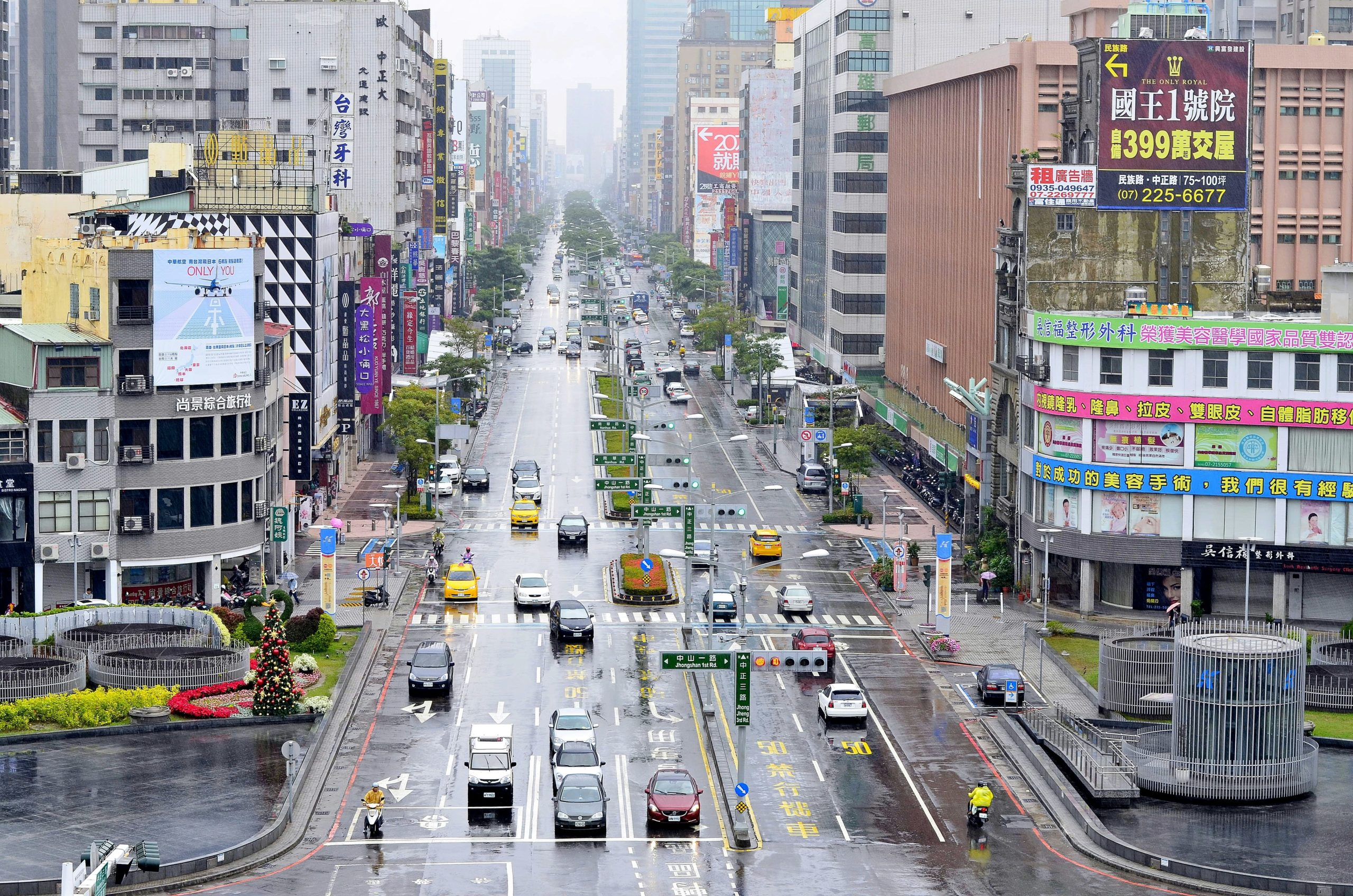
Kaohsiung, Taiwan’s largest industrial city, is on a mission to prove that industrial powerhouses can set and achieve ambitious climate targets. As the country’s manufacturing hub, Kaohsiung is a major economic contributor but accounts for one-fifth of Taiwan’s carbon emissions.
To tackle challenges faced by industrial cities, the Kaohsiung City Government leads the Net-Zero Industrial Alliance, aiming to help industrial cities reduce their carbon emissions by leveraging the strengths of larger enterprises to support smaller ones.
Supporting this alliance, the Kaohsiung City Government and ICLEI, through the ICLEI Capacity Center for East Asia located in the city, have initiated a multi-year project focused on climate neutrality and smart cities. The initiative aims to be a hub for knowledge sharing and exchange on critical climate neutrality issues, particularly across cities in East Asia and the Asia Pacific.
In 2023, the city enacted an autonomous ordinance mandating a net-zero target by 2050. Additionally, Kaohsiung founded the Net-Zero Institute, the region’s first educational centre to cultivate talent in net-zero technology and practices. These efforts reinforce the city’s net-zero transition pillars: industrial innovation, legislative action, and talent development.
Tegucigalpa, Honduras: Mapping vulnerable areas to climate hazards
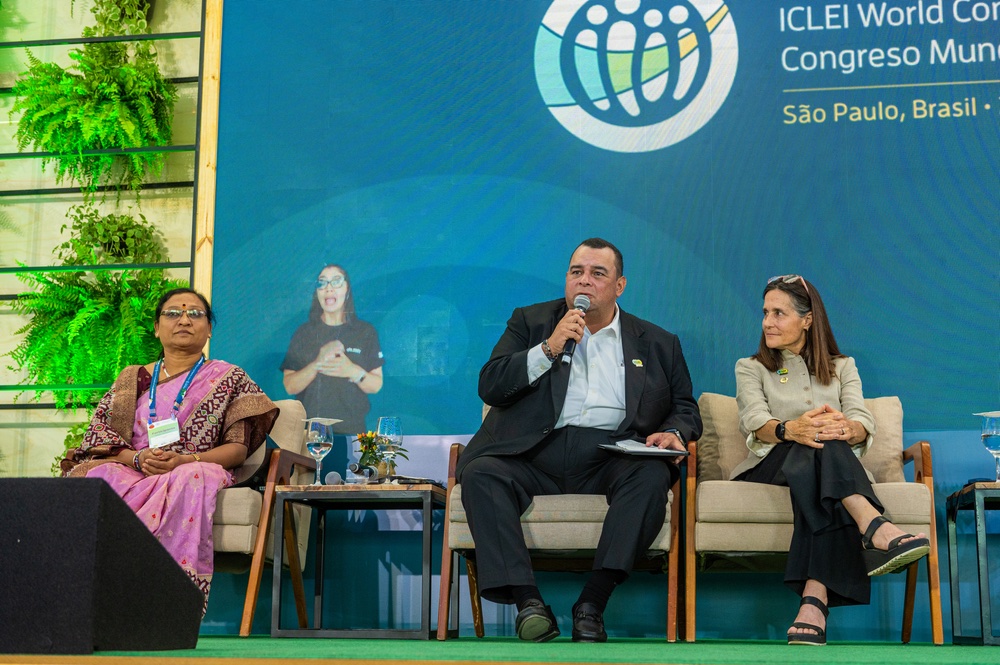
Tegucigalpa is one of the most vulnerable cities in the world, with six percent of its territory being at permanent risk of climate hazards. 600,000 of the 1.8 million inhabitants in the city live in constant danger due to the area where they live, mostly urban slums, and the lack of planning in its construction.
In September 2022, over 250 houses were destroyed by a landslide, and more than 2,000 people were evacuated. The city is already working on 40 sites vulnerable to climate risks. However, local resources are insufficient.
In collaboration with the Urban Infrastructure Insurance Facility (UIIF) project, Tegucigalpa and six other Latin American and Caribbean cities will be able to develop innovative insurance solutions that could benefit millions of vulnerable people across the region, which faces significant challenges due to the increasing frequency of extreme weather events.
Funded by KfW Development Bank on behalf of the German Federal Ministry for Economic Cooperation and Development (BMZ) and led by ICLEI, the UIIF helps cities understand and measure their risks, including insurance transfers tailored to their needs. Through the UIIF project, Tegucigalpa is ready to finance an immediate risk management map to better respond to and understand the city’s urban resilience against natural hazards, where all residents can live safely.
Sydney, Australia: Feasting maggots turn food scraps into zero waste solution
Sydney is turning to an unusual ally in its battle against food waste. In partnership with circular solutions company Goterra, the city has recently launched a one-year trial using black soldier fly larvae to consume 600 tonnes of Sydney residents’ food scraps, which emit potent greenhouse gasses as they decompose.
Black soldier fly larvae don’t carry diseases and can break down bacteria in the organic material they consume. Over their two-week lifespan, these larvae can eat between 1.2 and 1.7 tonnes of food waste daily, doubling their body weight every day. The result? Protein-rich animal feed and natural fertilizer, both crucial for sustainable food production.
Since 2019, Sydney’s food scrap recycling service has already seen over 21,000 households participate, turning food waste into compost. With this new trial using maggots for the first time, the city is poised to further revolutionise its approach to food waste management by using this low-tech yet impactful circular solution.
Ludwigsburg, Germany: Speeding up energy transition through equitable subsidy schemes
Ludwigsburg demonstrates its commitment to equity in climate mitigation with a subsidy scheme for plug-in solar devices, or mini-PV systems, that can be mounted on balconies or exterior walls and plugged into existing outlets. This initiative allows tenants, not just homeowners, to join the renewable energy transition, lowering electricity bills by 10-20 percent.
Under the INCLU:DE project, implemented by ICLEI and supported by Stiftung Mercator, the city introduced a “carefree package” for low-income households, ensuring that all residents can benefit from renewable energy without financial hurdles.
São Paulo, Brazil: A swift response to beat the heat
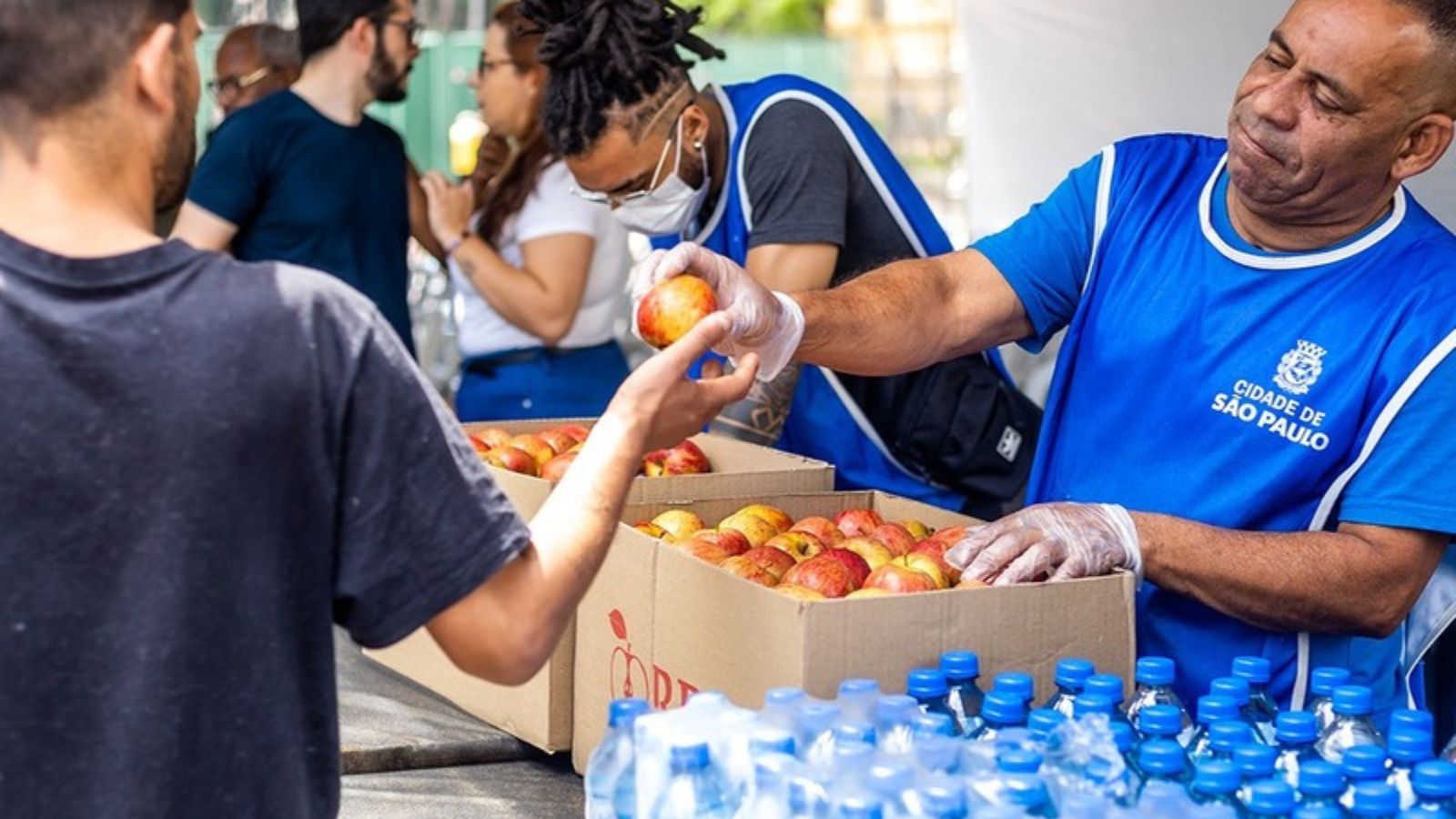
Recognising the health impact of increasing heat waves since September 2023, especially on vulnerable populations, São Paulo launched its Operation High Temperatures (OAT). This plan activates whenever temperatures reach 32°C or an equivalent thermal sensation.
Tents located at strategic city points provide shade and rest areas with fans and free water, iced tea, fruit, caps, and even pet drinking fountains. Municipal staff guide residents on self-care and refer homeless individuals to reception centers. Each tent has an ambulance for emergency heat exposure assistance.
The City of São Paulo, host of the ICLEI World Congress 2024, along with Latin America’s largest social assistance network, ensures over 25,000 places for the homeless are equipped with fans and drinking fountains. From September 2023 to March 2024, OAT delivered nearly 1.4 million services and distributed over 3.1 million items, including water and fruits.


